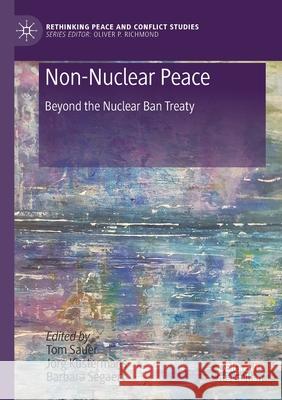Non-Nuclear Peace: Beyond the Nuclear Ban Treaty » książka
topmenu
Non-Nuclear Peace: Beyond the Nuclear Ban Treaty
ISBN-13: 9783030266905 / Angielski / Miękka / 2020 / 194 str.
Non-Nuclear Peace: Beyond the Nuclear Ban Treaty
ISBN-13: 9783030266905 / Angielski / Miękka / 2020 / 194 str.
cena 442,79
(netto: 421,70 VAT: 5%)
Najniższa cena z 30 dni: 424,07
(netto: 421,70 VAT: 5%)
Najniższa cena z 30 dni: 424,07
Termin realizacji zamówienia:
ok. 16-18 dni roboczych.
ok. 16-18 dni roboczych.
Darmowa dostawa!
Kategorie BISAC:
Wydawca:
Palgrave MacMillan
Seria wydawnicza:
Język:
Angielski
ISBN-13:
9783030266905
Rok wydania:
2020
Wydanie:
2020
Numer serii:
000312198
Ilość stron:
194
Waga:
0.27 kg
Wymiary:
21.01 x 14.81 x 1.19
Oprawa:
Miękka
Wolumenów:
01
Dodatkowe informacje:
Wydanie ilustrowane











